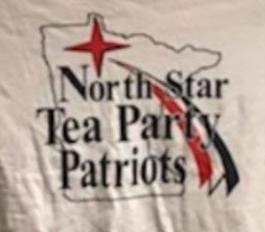This is mark Joseph “young” blog entry #253, on the subject of Political Messages at Polling Places.
You may have heard that the Supreme Court, in a 7-2 decision, struck down Minnesota’s law forbidding the wearing of anything “political” when you go to the polling place to vote.

The case is Minnesota Voters Alliance et all. v. Mansky et al., and continuing his interest in leaving a mark on I Amendment law, Chief Justice John Roberts wrote the majority opinion. The law is a fairly common sort, the court identifying thirty-six other states and the District of Columbia as having similar laws. In New Jersey we have N. J. Stat. Ann. §19:34–19 Insignia at polls
19:34-19. No person shall display, sell, give or provide any political badge, button or other insignia to be worn at or within one hundred feet of the polls or within the polling place or room, on any primary, general or special election day or on any commission government election day, except the badge furnished by the county board as herein provided.
A person violating any of the provisions of this section shall be guilty of a disorderly persons offense.
It does not appear that the New Jersey law would withstand the scrutiny of this case, because of the problem the majority had with the use of the word “political”. That word, it argued, was too broad; and when they questioned the State’s attorney at oral argument it became more problematic. An NRA shirt would always be banned, but a Rainbow flag shirt would only be banned if there were an issue of gay rights on the ballot. A shirt displaying the text of the I Amendment (freedom of speech, press, religion, and association) would always be permissible, but one with the text of the II Amendment (right to bear arms) would always be excluded. Guidelines issued by the State to polling place judges did not, in the Court’s view, clarify the matter.
Justice Sotomayer dissented, joined by Justice Breyer. Their objection could be summarized as stating that the decision is premature, that they should not have decided the case but deferred it to the Minnesota State Supreme Court. The majority claimed that they could not imagine any interpretation of the law as written that would pass muster with its concerns, but the dissent said that in matters of state law that have not yet been interpreted by the state, it is if not normal at least common for the Supreme Court to ask the State’s highest court to provide its understanding of the law, and then determine whether that understanding passes constitutional muster. This law has been in place for over a century, dating back to the end of the nineteenth century when polling places were often filled with hecklers and vote privacy was minimal. Until this case (seven years ago) it has never been challenged and no one had been prosecuted for violating it, nor had anyone been refused the right to vote. It probably has been applied reasonably, even if the Supreme Court doesn’t know how, and an opinion from the State courts would have been an appropriate step before striking down such a long-established statute.
There’s a solid argument there, but the majority apparently didn’t believe the State court could provide a viable response and didn’t wish to delay the matter.
Thus there is a good chance that whatever rule your state has regarding wearing political messages to the polling place has just been ruled unconstitutional.